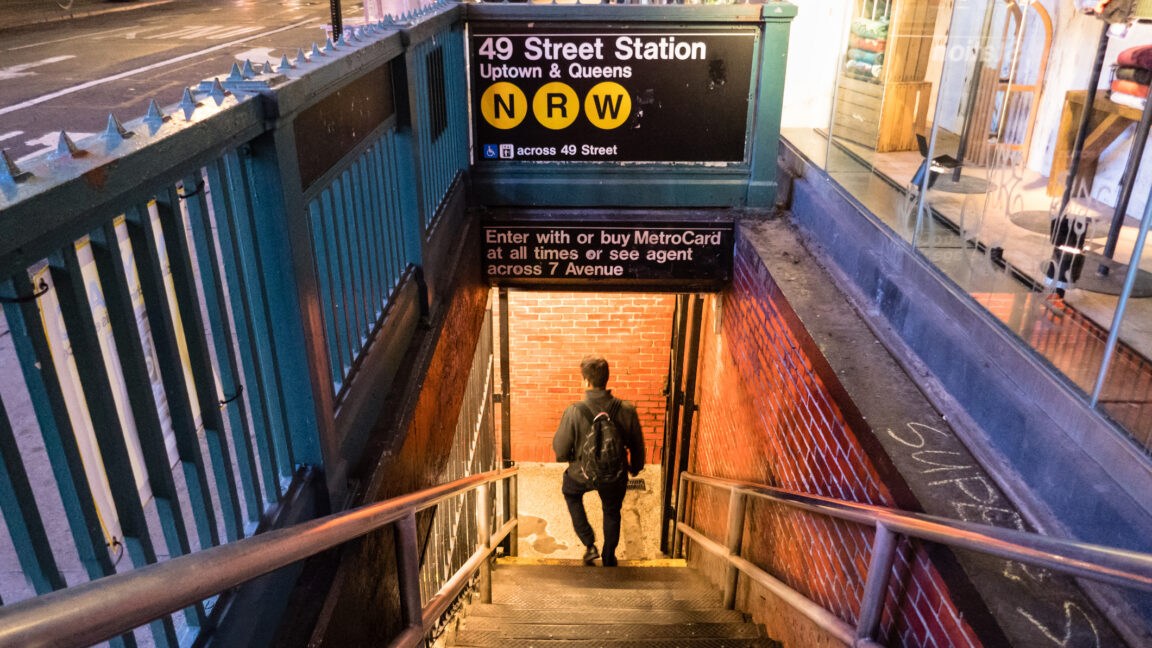Vandals deface ads for AI necklaces that listen to all your conversations
In addition to backlash over feared surveillance capitalism, critics have accused Schiffman of taking advantage of the loneliness epidemic. Conducting a survey last year, researchers with Harvard Graduate School of Education’s Making Caring Common found that people between “30-44 years of age were the loneliest group.” Overall, 73 percent of those surveyed “selected technology as…

In addition to backlash over feared surveillance capitalism, critics have accused Schiffman of taking advantage of the loneliness epidemic. Conducting a survey last year, researchers with Harvard Graduate School of Education’s Making Caring Common found that people between “30-44 years of age were the loneliest group.” Overall, 73 percent of those surveyed “selected technology as contributing to loneliness in the country.”
But Schiffman rejects these criticisms, telling the NYT that his AI Friend pendant is intended to supplement human friends, not replace them, supposedly helping to raise the “average emotional intelligence” of users “significantly.”
“I don’t view this as dystopian,” Schiffman said, suggesting that “the AI friend is a new category of companionship, one that will coexist alongside traditional friends rather than replace them,” the NYT reported. “We have a cat and a dog and a child and an adult in the same room,” the Friend founder said. “Why not an AI?”
The MTA has not commented on the controversy, but Victoria Mottesheard—a vice president at Outfront Media, which manages MTA advertising—told the NYT that the Friend campaign blew up because AI “is the conversation of 2025.”
Website lets anyone deface Friend ads
So far, the Friend ads have not yielded significant sales, Schiffman confirmed, telling the NYT that only 3,100 have sold. He expects that society isn’t ready for AI companions to be promoted at such a large scale and that his ad campaign will help normalize AI friends.
In the meantime, critics have rushed to attack Friend on social media, inspiring a website where anyone can vandalize a Friend ad and share it online. That website has received close to 6,000 submissions so far, its creator, Marc Mueller, told the NYT, and visitors can take a tour of these submissions by choosing to “ride train to see more” after creating their own vandalized version.
For visitors to Mueller’s site, riding the train displays a carousel documenting backlash to Friend, as well as “performance art” by visitors poking fun at the ads in less serious ways. One example showed a vandalized ad changing “Friend” to “Fries,” with a crude illustration of McDonald’s French fries, while another transformed the ad into a campaign for “fried chicken.”
Others were seemingly more serious about turning the ad into a warning. One vandal drew a bunch of arrows pointing to the “end” in Friend while turning the pendant into a cry-face emoji, seemingly drawing attention to research on the mental health risks of relying on AI companions—including the alleged suicide risks of products like Character.AI and ChatGPT, which have spawned lawsuits and prompted a Senate hearing.
